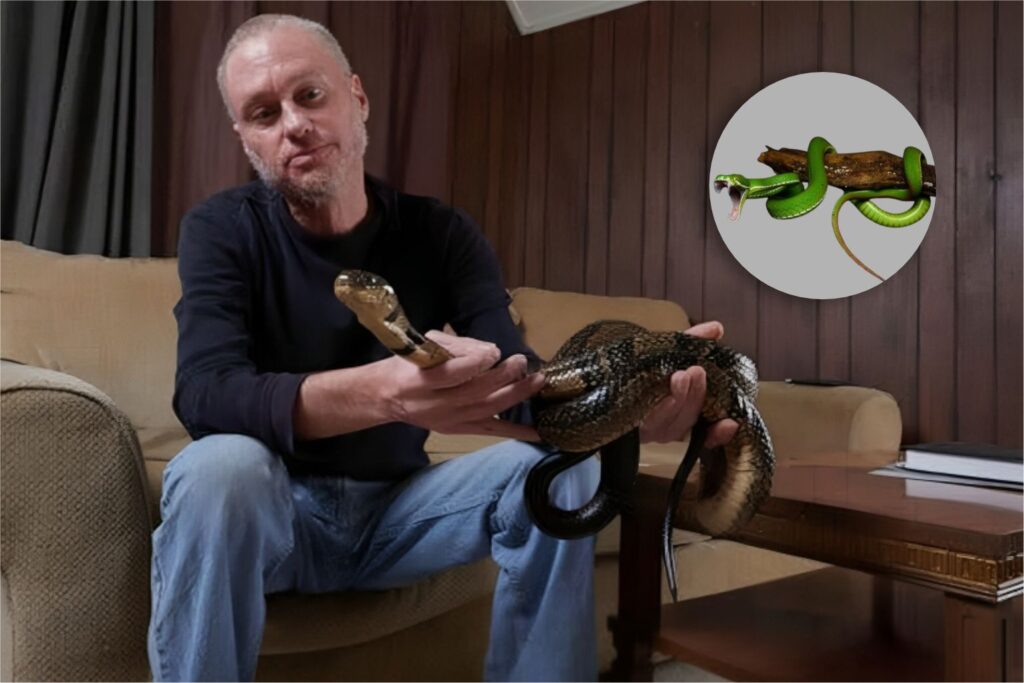
A Wisconsin man who spent nearly two decades injecting himself with snake venom—and enduring bites from some of the world’s deadliest snakes—has helped pave the way for what scientists are calling an ‘unparalleled’ step toward a universal antivenom.
For nearly 18 years, the donor, Timothy Friede, exposed himself to 200 bites and over 700 self-immunisations, the BBC reported. Researchers have studied his blood, discovering antibodies that could be instrumental in creating a “broad-spectrum or universal” antivenom against snakebites worldwide.
Fascinated with reptiles, Friede kept dozens of snakes at his Wisconsin home. Hoping to protect himself from snake bites — and out of what he calls “simple curiosity,” he began injecting himself with small doses of snake venom and then slowly increasing the amount to build tolerance. He would then let snakes bite him, the news agency AP reported. Friede also contacted scientists to ask them to study the tolerance he’d built up.
Also Read | Glued to his phone, Delhi teen missed the signs of spinal TB — until he couldn’t walk
In a study published Friday in the journal Cell, Kwong and collaborators shared what they were able to do with Friede’s unique blood: They identified two antibodies that neutralise venom in many different snake species and produced a treatment that could offer broad protection. Researchers have only tested the antivenom on mice, and human trials are still years away. And while their experimental treatment shows promise against the group of snakes that include mambas and cobras, it’s not effective against vipers, which include snakes like rattlers.
Snakebites remain a significant global health issue, particularly in rural areas of Africa, Asia, and Latin America, where access to medical care is limited. The World Health Organization estimates that snakebites cause up to 138,000 deaths annually.
Centivax, a company striving to develop the treatment, now employs Friede and helped fund the study. What initially started as a fascination later became Friede’s motivation to develop therapy for the world. “It just became a lifestyle, and I just kept pushing and pushing and pushing as hard as I could push to help people 8,000 miles away who die from snakebites,” he said, the BBC reported.








